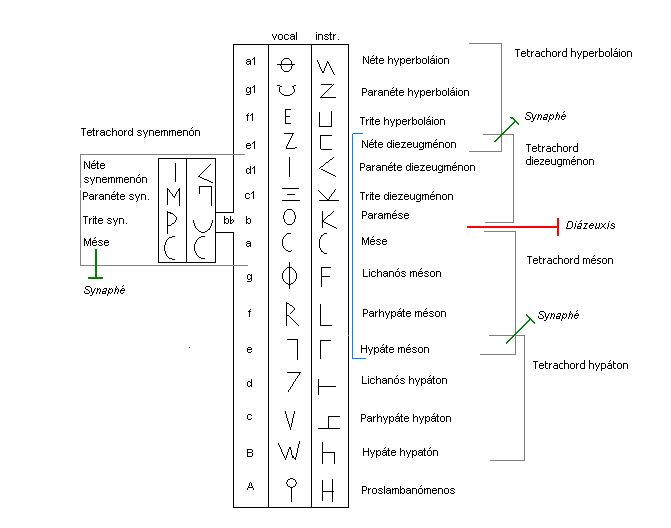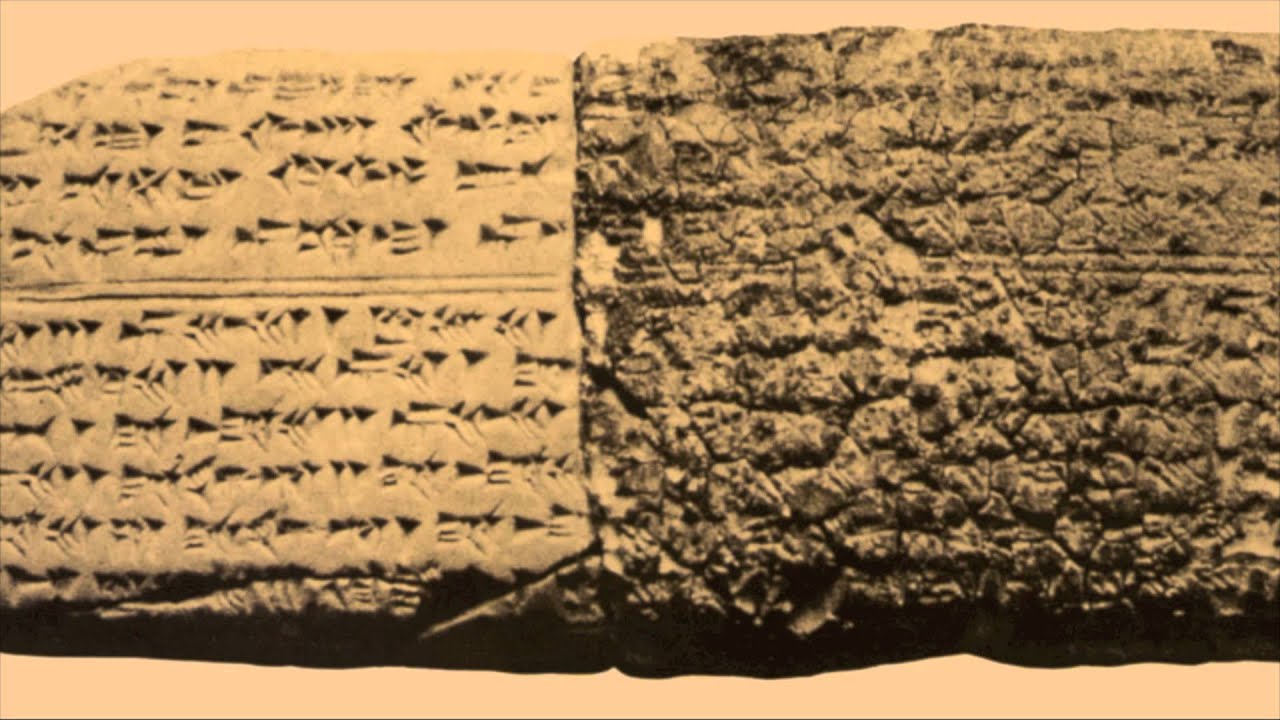“Let’s all get up and dance to a song that was a hit before your mother was born,” the Beatles wrote back in 1967, “though she was born a long, long time ago.” Music has been around for millennia, and while much of it has been cataloged (mostly religious music, the further back you go), it’s tragic to think of the history that we have no record of – some that were lost to time, or others that were passed on solely through oral tradition and never written down. So what is the oldest song in recorded history?
Epitaph of Seikilos
It probably won’t come as much surprise that the oldest complete composition dates back to ancient Greece. In 1883, Sir W. M. Ramsay discovered the epitaph in Tralleis, a small town near modern day Turkey. The stele tombstone dates back as far as the 1st or 2nd century and was inscribed with both an epitaph … and with song lyrics. The lyrics were underscored with the ancient Greek musical notation used from the 6th century BC until approximately the 4th century AD, a style of music writing that was discontinued around the time of the decline of the western Roman Empire.

The epitaph itself reads “I am a tombstone, an image. Seikilos placed me here as a long-lasting sign of deathless remembrance.” The last two words on the tombstone itself are “Seikilos Euterpe,” which has led scholars to believe that Euterpe was either Seikilos’ lover or his mother. Either way, the lyrics of the following song were written in her memory:
“While you live, shine. Have no grief at all. Life exists only for a short while, and Time demands his due.”
The short melody has a peaceful simplicity and a bittersweet emptiness, reinforced by the lack of melodic resolution and ephemeral tonality. Like much ancient music, the Epitaph of Seikilos was not written in a major or minor key; keys as we understand them now had not been invented yet!

Rather, the precise modality of piece is up for debate. University of Chicago Musicology Professor Don Randel points out that “the harmoniai had no finals, dominants, or internal relationships that would establish a hierarchy of tensions and points of rest. Although the epitaph’s melody is clearly structured around a single octave, the melody emphasizes the mese by position rather than the mese by function.”
While the reasons behind the melodic concept have been lost to time, the lyrics are reflective of a modern ‘seize the day’ mentality, very much in line with the typical ancient Greek mentality – to quote Alexander the Great, “I would rather live a short life of glory than a long one of obscurity.”

The Seikilos epitaph is the oldest complete musical composition in recorded history … but we can find written music that’s older still:
Hurrian Hymn no. 6
In what is modern Iraq, we found a cuneiform tablet created in what was once the ancient Sumerian city of Nippur. The tablet represents fragmentary instructions for performing music and dates as far back as 1400 BC. The music actually utilizes the standard diatonic scale, and is composed of harmonies of thirds. Another tablet from 1250 BC offers us insight on a more perfected variant of the same notation:

The notation system dates back so far that modern interpretations are widely controversial. The interpretation of the musical notation is still controversial, though the words written upon it are purportedly a Hurrian hymn concerning offerings to the goddess Nikkal, wife of the moon god. The notation does indicate the names of strings on a lyre, the tuning of which is described in other tablets. Though we only understand fragments of what was written on this tablet, there have been attempts to musically recreate the structure of the song:
Though other tablets in the Hurrian songs bear the names of their composer, this largely complete fragment is an anonymous work, even the text of which is not perfectly understood. It does use the Ugarit dialect, albeit a more local variant than the ones previously encountered, but the discovery and translation of these tablets is honestly miracle enough after being lost for over 3,400 years.

Stay tuned with us for more interesting historical tidbits, and let us know in the comments below if you learned something about music today!


